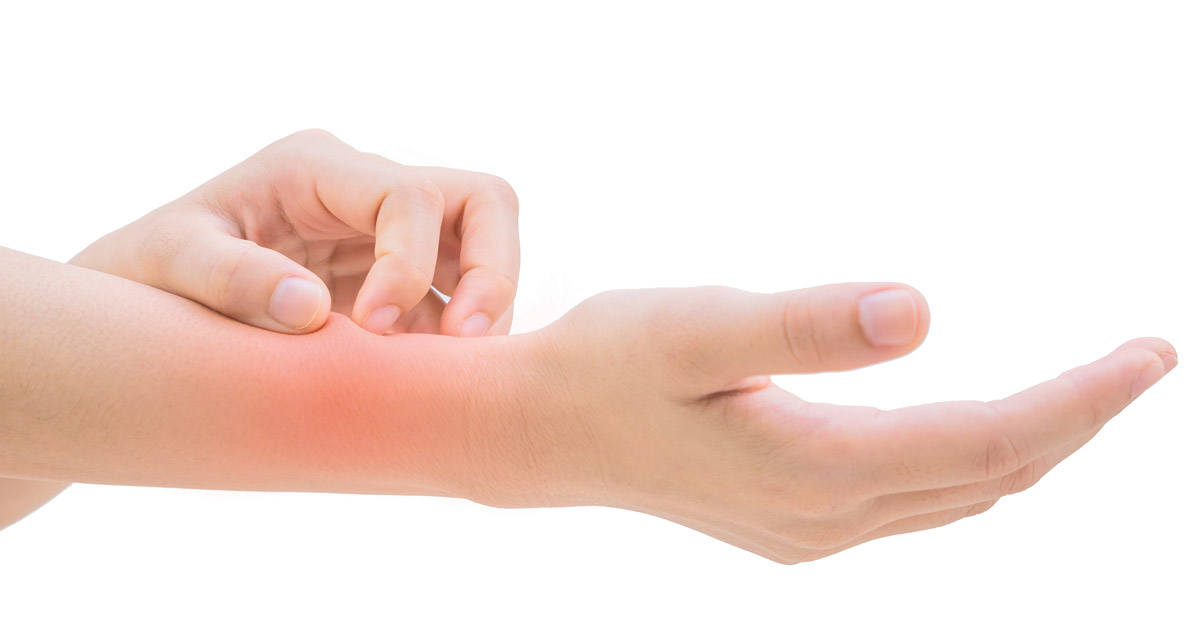Throughout my whole life, I have struggled with eczema flare-ups. I’ve tried numerous lotions, prescription creams, and more, trying to find what worked. Moreover, the battle with eczema is more common than many people might think. According to the National Eczema Association, over 30 million Americans have the condition, which can affect babies, children, and adults alike.
As stated on the association’s website, eczema can be defined as “A group of conditions that cause the skin to become red, itchy, and inflamed.” However, none of the groups are contagious. There are multiple types, including atopic dermatitis. This kind is known for being chronic, and one of the more severe forms. While there is no known cause for the condition, medical experts have found that genes can play a part. An affected person might not have enough filaggrin, a protein that helps the top layer of skin create a protective barrier to keep moisture in and bacteria out; or the person is said to have an “over-reactive immune system” that is easily triggered by various environmental substances. Common triggers include dry skin, stress, metals, fragrances, pollen, household cleaners and detergents, mold, sweat, climates that are too dry or too humid, long, hot showers or baths, fabrics, and body washes. What irritates the skin varies from person to person, and it might take some time to figure out what causes a flare-up for you. Consult with your primary care physician or dermatologist if you are having difficulties.
A key to identifying triggers is to pay attention to the symptoms of the disease. Eczema can appear in only one area of the body or all over. In addition, different parts can be aggravated at different times. If you notice your skin becoming very itchy or dry, remember to not scratch and cause the area to get more inflamed. This is usually one of the first symptoms a person sees. Others include red, inflamed skin, dark-colored patches, oozing, scaly patches, or swelling. Note that you may have all, or only a few, symptoms.
As with the cause, there is no absolute treatment. However, there are many ways to help control the itch. First, know what provokes your skin and try to stay away from it. Maybe you need to change your laundry detergent to something fragrance-free or stop using the fancy perfumes. Also, always remember to moisturize daily, especially after taking a shower, bath, or being in the water. Try to lotion up within three minutes of getting out of the shower. Lastly, over-the-counter medicines and topical, injectable, and oral prescriptions are available. Yet, there are multiple other remedies, often overlooked, that can assist in maintaining symptoms.
- Use colloidal oatmeal products, such as Aveeno, to relieve itching. You can either put it in a warm bath or use it in the form of a lotion or cream. Whether you decide to add oatmeal to your water or not, regularly take lukewarm showers or baths. Hotter temperatures dry out a person’s skin.
- Moisturize with coconut oil. This item has antibacterial and anti-inflammatory benefits which prevent additional bacteria from seeping into the skin. Another option to try is olive oil. You may feel oily, but it is worth it in the end.
- Speaking of moisturizing, thick creams are the way to go. Every day, I put on a thick cream multiple times, because it locks in more moisture than lighter lotions do. Plus, the cream keeps my skin from getting dry as I go about my plans.
- Clean out your closet. Assistant Professor of dermatology at Columbia University Medical Center Doctor Lindsey Bordone states in the article, “10 Home Remedies for Eczema,” that rough fabrics, such as wool, are triggers. An alternative is to go for more breathe-able fabrics. For me, cotton is the best option.
- Watch what you eat. Food allergies can affect your skin. For example, soy products, fish, gluten, nuts, and eggs can create inflammation, as well as sugary products. On the opposite end, anti-inflammatory foods, foods with a high amount of quercetin (an antioxidant and antihistamine), and probiotic-rich foods improve symptoms and irritated areas. So, stock up on all the apples, blueberries, broccoli, and salmon that you can!
Eczema can be an annoying recurrence, but it is one that can be maintained. If you suffer from this condition, try these tips above to help ease your symptoms and flare-ups. Always consult with your doctor before starting any new treatment. Finding the best solution for you is possible, and will make life a little bit easier.























